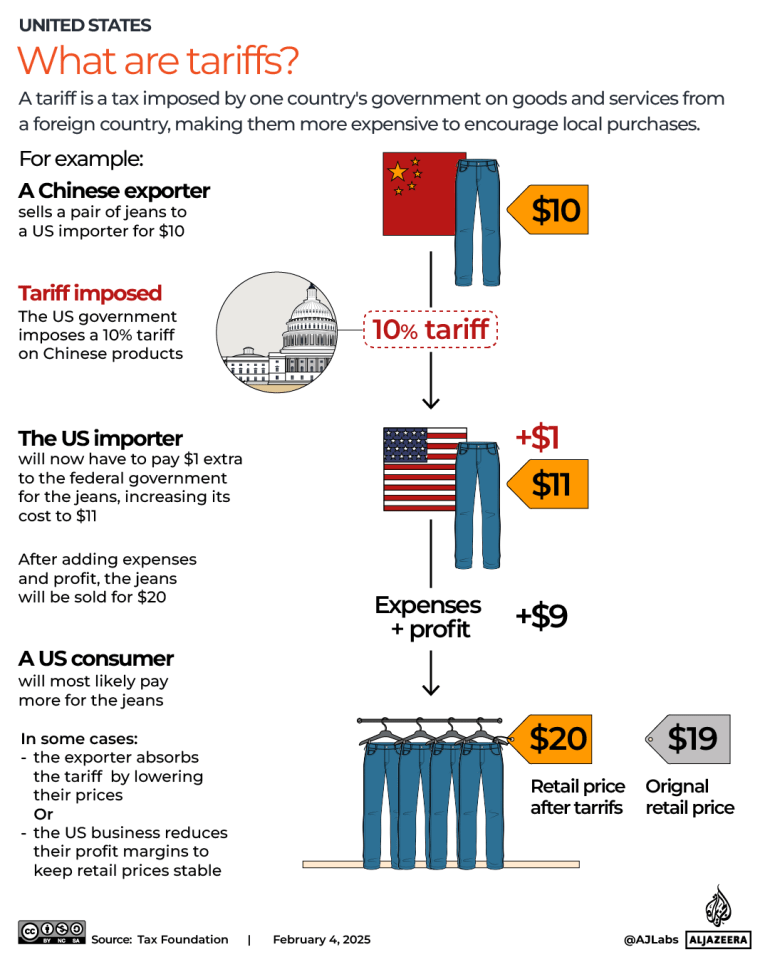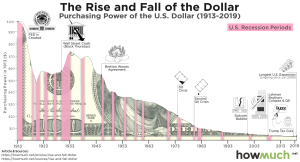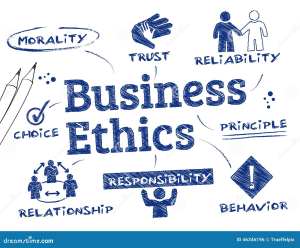In recent discussions surrounding tariffs and U.S. workers, Republican Senator Rick Scott has emerged as a key advocate for leveraging tariffs to bolster domestic employment and promote fair competition. During a recent forum, Scott defended the Trump administration’s trade policy, emphasizing that tariffs could help level the playing field for American workers against foreign competitors. He argues that by reducing barriers imposed by other nations, particularly China, the U.S. economy could create more opportunities for manufacturers and laborers alike. Despite the controversy surrounding the economic impact of tariffs, Scott remains steadfast in his belief that they are necessary measures to protect U.S. interests and strengthen trade relations. As he articulates his stance, the ongoing debate about the tariff impact raises questions about the future landscape of America’s economic policies and their effects on workers.
In the evolving landscape of international trade, the conversation about import duties and their effects on American employment has become increasingly relevant. Senator Rick Scott advocates for the use of protective tariffs as a strategic tool to safeguard U.S. labor and enhance competitive standing in the global market. This approach is seen as a way to pressure trading partners, notably China, to reconsider their own tariff structures and work toward more equitable trade agreements. As policymakers grapple with issues of economic growth and trade balance, the significance of these duties in shaping the future of the U.S. manufacturing sector cannot be understated. The implications of such trade policies reflect not only on the economy but also on the livelihood and prosperity of American workers.
Understanding Tariffs and Their Impact on the U.S. Economy
Tariffs are taxes imposed on imported goods, often used by governments to protect domestic industries and manage trade balances. In the context of current U.S. trade policy, the tariffs championed by Senator Rick Scott aim to counteract perceived disadvantages faced by American workers. Scott argues that by raising tariffs on foreign products, particularly from countries like China, the U.S. can encourage consumers to buy American-made products, thus revitalizing the economy. However, this strategy has sparked significant debate among economists and policymakers alike regarding its effectiveness in fostering long-term economic growth.
The recent implementation of these tariffs has caused ripples across the global market, contributing to a decline in stock prices and uncertainty about future trade relations. Many experts caution that while tariffs may provide short-term relief for U.S. manufacturers, they could lead to increased prices for consumers and retaliation from trading partners, exacerbating trade conflicts. The balance between protecting American jobs and maintaining healthy international trade relations is delicate, and as tariffs become a tool of U.S. trade policy, understanding their broader economic implications is essential.
Frequently Asked Questions
How do tariffs affect U.S. workers and the economy?
Tariffs can significantly impact U.S. workers by altering job opportunities and wage levels. They are designed to protect American manufacturers from foreign competition, potentially leading to increased domestic production. However, they can also result in higher costs for consumers and retaliatory measures from other countries, which might harm U.S. workers in sectors that rely on exports. The overall effect of tariffs on the U.S. economy is complex, as they aim to level the playing field but can also introduce volatility in global markets.
What is Rick Scott’s stance on tariffs and their impact on American workers?
Senator Rick Scott supports tariffs as a means to protect U.S. workers and stimulate American manufacturing. He argues that these trade policies are necessary to eliminate barriers to U.S. products in international markets. Scott believes that increasing tariffs can help American workers sell more products and reduce unfair competition, particularly from countries like China.
How might tariffs reshape U.S. trade policy in relation to China?
Tariffs are central to reshaping U.S. trade policy, especially in relation to China. They are intended to pressure foreign governments to remove their barriers against American goods. Scott advocates for zero trade with China, suggesting that reducing economic ties would protect U.S. workers and potentially weaken China’s economic power, thus enhancing the competitiveness of American industries.
What are the potential drawbacks of imposing tariffs as highlighted by economists?
Many economists argue that while tariffs can protect certain U.S. industries, they can also lead to higher consumer prices and strained international relations. Such policies may hurt the broader U.S. economy by provoking trade wars and reducing export competitiveness, thus potentially undermining the very U.S. workers tariffs aim to protect.
How do tariffs affect inflation and national debt according to Scott’s viewpoint?
Senator Rick Scott has expressed uncertainty about how tariffs directly influence inflation. He advocates that managing the national debt through a balanced budget and reduced spending is crucial for controlling inflation. Scott suggests that while tariffs may play a role in the economic landscape, fiscal responsibility is key to price stability.
What are the implications of the current tariff rates set by the U.S. government?
The current tariff rates imposed by the U.S. government can significantly affect both domestic industries and international trade relations. For instance, a 10 percent tariff on most nations, excluding China, which faces as high as 145 percent, aims to protect U.S. manufacturers. However, these high tariffs can lead to retaliatory tariffs from affected countries, potentially harming U.S. farmers and exporters, thereby creating a challenging environment for U.S. workers.
What is the connection between tariffs and trade deficits in the context of U.S. trade policy?
Tariffs are often viewed as a tool to reduce trade deficits by making imported goods more expensive, thus encouraging consumers to buy domestically produced items. In Rick Scott’s view, implementing tariffs could help support U.S. manufacturers and workers while decreasing reliance on foreign products, particularly from countries like China where trade imbalances are pronounced.
| Key Points | Details |
|---|---|
| Rick Scott’s Tariff Defense | Scott supports tariffs as a way to level the playing field for U.S. workers. |
| Economic Impact | Tariffs led to market volatility and a significant GDP contraction in the first quarter. |
| Negotiation vs. Tariffs | Furman suggested negotiations might have been more beneficial than unilateral tariffs. |
| Focus on China | Scott views China as a significant competitor and advocates for halting trade with them. |
| Tariff Rates | The government imposed a 10% tariff on many countries; China faces a 145% tariff. |
| Criticism of Tariffs | Many economists, including Furman, argue that tariffs could hurt the U.S. economy. |
| Scott’s Fiscal Perspective | He emphasizes the importance of a balanced budget to control inflation. |
Summary
Tariffs and U.S. workers have become a pivotal topic in economic discussions, particularly with Republican Senator Rick Scott defending their implementation as a necessary step to support American labor. By imposing tariffs, the government aims to reduce foreign competition and elevate the domestic market, fostering growth for American workers. However, critics, including economists like Jason Furman, caution that such measures could lead to negative repercussions for the economy as a whole. As the dialogue on tariffs continues, it remains essential to balance trade strategies with the economic realities affecting U.S. workers.




